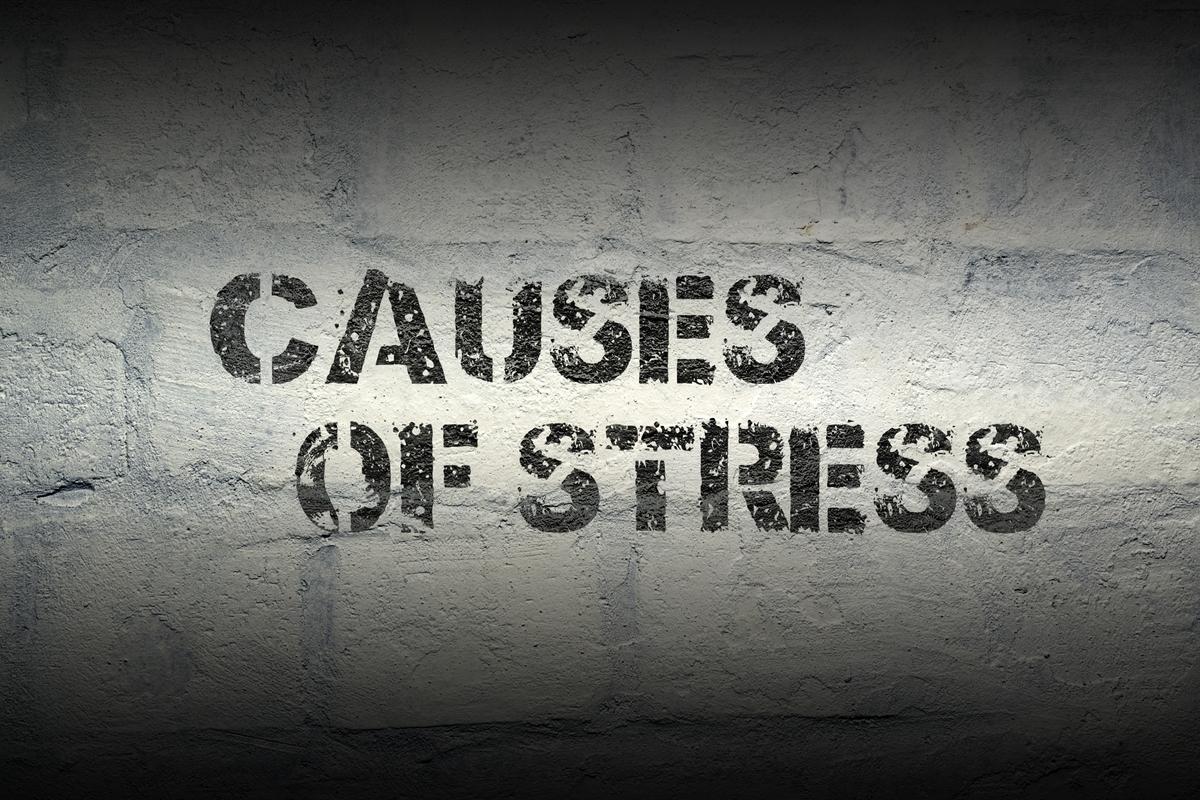Stress is something we all experience, and unfortunately, it can impact our sexual health. But what causes stress in the first place? Understanding how to identify and manage the causes of stress is important for mental and physical well-being. In this article, we’ll explore some of the stress factors that can affect psychological and emotional well-being and how it affects one’s sexual health.
By understanding the causes and effects of stress, you can take proactive steps to minimise its impact on your life – including your sex life. Let’s dive into understanding more about the causes of stress and its effects on our sexual health.
Top 10 causes of stress
The causes of stress can vary widely, but some of the most common include factors of stress include:
1. Changes in the work environment or job responsibilities
A sudden change in your job environment or responsibilities can often become one of the causes of stress in the workplace and anxiety too. This could be due to learning new tasks, adapting to different work cultures, or dealing with unfamiliar colleagues. If you’re feeling overwhelmed by the changes that come with a new job role, it’s important to take some time for yourself and focus on what you can do to make the transition a bit easier.
2. Financial pressures
Money is often at the root of many stressors, and financial pressures can quickly lead to anxiety. Whether dealing with debt or deciding what bills you can afford each month, money woes are a major contributor to stress levels. To combat financial-related stress, it’s important to create and stick to a budget. If you’re struggling financially, seeking help from an expert can be incredibly beneficial in helping you prioritise what needs to be paid and what debts need to be addressed first. This can be one of the causes of stress in students who have taken loans to pursue higher education.
3. Lack of sleep
Getting enough rest is vital for your physical and mental health. Unfortunately, busy lifestyles and poor sleeping habits can lead to fatigue, which in turn leads to stress. Aim for at least 7-8 hours of quality sleep each night, and if you’re having difficulty falling asleep or staying asleep, consider what lifestyle changes you could make that would promote better sleep hygiene.
4. Unhealthy lifestyle habits
Unhealthy lifestyle habits such as smoking and drinking can harm both mental and physical health, as well as contribute to higher levels of stress. Similarly, not getting enough sleep or engaging in unhealthy habits such as overeating or not exercising can also lead to higher stress levels. To reduce your risk of stress, it’s important to create healthy lifestyle habits such as regular exercise, eating a balanced diet, and avoiding alcohol and tobacco.
5. Health issues such as chronic illness or injury
Chronic illness or injuries can cause both physical and emotional pain, leading to higher levels of stress. Suppose you’re dealing with a chronic condition or injury. In that case, it’s important to get the right support and treatment to manage your symptoms and work towards regaining as much of your independence as possible.
6. Issues around identity
Identity issues can cause significant stress, especially when it comes to sexuality and gender nonconformity. Struggling to find acceptance or understanding from family or friends can be a major source of anxiety. Reaching out for assistance and support from friends, family, or mental health experts is crucial if you’re feeling overburdened by identity-related stress.
7. Social media overload
Social media is a great way to stay connected with friends and family, but too much time on these platforms can lead to increased stress levels. Limiting your use of social media and taking regular breaks from it can help reduce stress.
8. Workplace harassment or discrimination
Harassment or discrimination in the workplace can be a major source of stress. If you feel uncomfortable or unsafe due to harassment or discrimination, it’s important to speak up and reach out for help.
9. Expectations from family, friends, and colleagues
We often put pressure on ourselves to meet certain expectations from those around us. Trying to juggle what is expected of us by family, friends, and colleagues can lead to increased stress levels. Making sure to prioritise what’s important for you and communicating your needs with others can help reduce this type of stress.
10. Difficult relationships
Having difficult relationships with family members, friends, or romantic partners can be a major cause of stress. Suppose you feel like the relationship is beyond saving. In that case, it’s important to focus on what you can control and let go of what you can’t—additionally, focusing on building healthier relationships with others and engaging in self-care.
How does stress affect men’s sexual health?
Stress can take a toll on men’s sexual health, leading to decreased libido, erectile dysfunction, premature ejaculation, and difficulty maintaining an erection. Suppose stress affects your ability to enjoy sexual activities and relationships. In that case, it’s important to talk to your doctor or a mental health professional about what steps you can take to deal with the underlying causes of your stress.
Additionally, counselling or cognitive behavioural therapy (CBT) may also be beneficial in helping you overcome any anxieties or depression contributing to the problem. Making lifestyle changes such as getting enough sleep and exercising regularly can also help reduce stress levels and improve overall well-being. If you’re wondering if stress causes high blood pressure, the answer would be a definite yes. As stress is known to cause fluctuations in blood pressure.
Ultimately, by addressing what is causing the stress in your life, the negative effects of stress, and engaging in self-care practices, you can take steps toward resolving any issues related to your sexual health.
Conclusion
Stress can have serious physical and mental effects on our well-being. Identifying what is causing your stress and taking steps to manage it can help reduce its impact. If you are feeling overwhelmed by stress, seeking the help of a health professional may be beneficial in helping you identify what’s causing your stress and what strategies you can use to reduce it.
Taking care of yourself through healthy lifestyle habits such as exercise, eating nutritious foods, and avoiding alcohol or tobacco will also go a long way in helping you cope with the effects of stress.
FAQs about stress
1. Does lack of sex cause stress?
Lack of sex does not directly cause stress. However, suppose your lack of sexual activities is causing you to feel out of sorts or anxious. In that case, it’s important to address what is causing these feelings and potentially seek help from a mental health professional. Additionally, stress can affect men’s sexual health, so it’s important to take steps to manage any stressors in your life.
2. How does stress affect sexual performance?
Stress can affect sexual performance, leading to decreased libido, erectile dysfunction, premature ejaculation, and difficulty maintaining an erection. If stress is affecting your sexual performance, it’s important to talk to a health professional about what steps you can take to manage your stress levels.
Making lifestyle changes such as getting enough sleep and exercising regularly can help reduce stress levels and improve overall well-being. Additionally, counselling or cognitive behavioural therapy (CBT) may also be beneficial in helping you overcome any anxieties or depression contributing to the problem.
3. Why am I suddenly so sexually frustrated?
There are many reasons why you may be feeling sexually frustrated. Stress is a major contributing factor to sexual frustration, and what is causing the stress in your life needs to be addressed for it to go away. Identifying what is causing your stress and taking steps to manage it can help reduce its impact.
4. How to manage sexual stress?
The most important step in managing sexual stress is to identify what is causing your stress. People differ in their sexual frustration expressions and experiences. If a person’s sexual inconveniences start to affect other aspects of their life, they could think about consulting a mental health professional, engaging in self-care practices, and making lifestyle changes such as getting enough sleep and exercising regularly. Additionally, focusing on building healthier relationships with others and engaging in activities that bring joy or relaxation can also help reduce stress levels and improve overall well-being.
This article is for informational purposes only and does not constitute medical advice. The information contained herein is not a substitute for and should never be relied upon for professional medical advice. Book a consultation with andSons Singapore’s medical team to learn about our sexual health treatments here.


